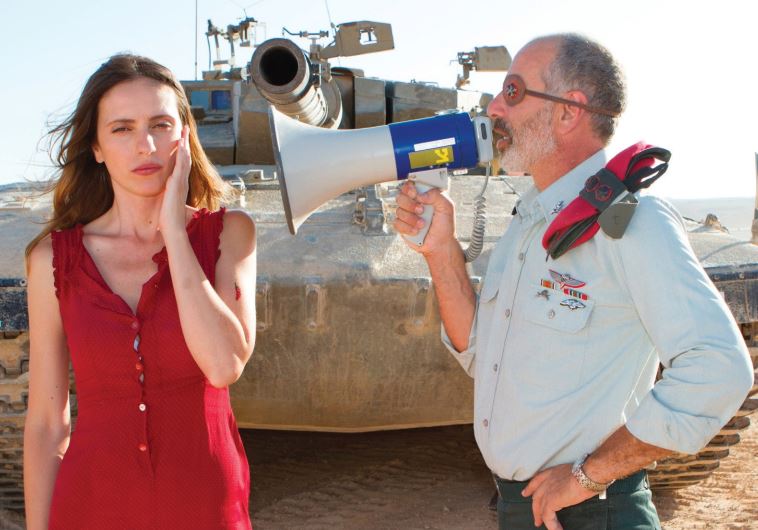Australia/Israel Review
AIR New Zealand: Moving Pictures to Open Doors
Apr 5, 2016 | Miriam Bell

Building bridges with art and culture is a time-honoured tradition. It could be a partnership between musicians from countries in conflict, or a fine art exhibition aiming to break down the gap between different parts of the world. Whatever the form, the arts can serve to create empathy, understanding and identification in situations where it might not otherwise exist.
In this sense, the signing of a film co-production agreement between New Zealand and Israel in March represents a new beginning. It will be a bridge between the two countries who have, at times, had a somewhat troubled past relationship.
The film co-production agreement comes hot on the heels of the 2015 film, “Atomic Falafel” – a madcap, fast-paced satire about the Israel-Iran nuclear showdown with a pro-peace message. The movie, which was a co-production between Israel, New Zealand and Germany, grossed the highest ever box office numbers for a domestic film in Israel.
Signed in Wellington by New Zealand’s Minister for Arts, Culture and Heritage Maggie Barry and Israeli Ambassador Yosef Livne, the agreement covers film, TV animation and digital productions. It means that film makers from Israel and New Zealand will have increased access to funding and incentives in both countries.
Ambassador Livne said the agreement will “see the opening of a new door, through which the world-renowned talent and successful film industry of New Zealand and the effervescent film industry in Israel will begin a joint march.”
The agreement has been a long time in the making – it took five years of negotiations – and doesn’t come into effect until it has been ratified by both New Zealand and Israel. Once it has been ratified, work will start on promoting it in both countries’ film industries.
It’s all about trying to bring two industries and two countries closer together, Livne said.
“Arts and culture are traditionally a way of building relationships and we think this is an important step in the relationship between the two countries. For that reason, it will be critical to encourage the agreement so that it achieves its aims.”
However, the agreement is just one part of a broader vision.
In Livne’s view, building national relationships is not dissimilar to weaving a carpet. Different colours and shapes are used to create a carpet. With relationships between countries, different mediums – arts and culture, people, science, business – are used to build identification and understanding.
People in New Zealand, by and large, don’t have a lot of knowledge of what Israel really is as a country, he said. “Films, music, lectures, etc… They are all part of the process of relationship building. It is an incremental process to build up a real image of who we (Israel) are for Kiwis. It’s important to show that, as a country, we are not just about stabbings and terror, that there is more to Israel than that.”
To this end, as well as the film agreement, there are Israeli authors, musicians, performers, and academics now coming to New Zealand regularly.
Livne said the relationship between the two countries was marching forward. “We are discovering each other, getting to know each other. But I think we can be very happy about the process that is going on. And we plan to do our best to ensure it continues and that both countries benefit.”
Representatives of New Zealand’s film industry have greeted the film co-production agreement with enthusiasm.
Minister Barry said the agreement will have significant benefits, including revenue, for both New Zealand and Israel. “It will foster stronger relationships between our screen sectors, as we share our creative expertise and technical resources. I’m sure it will spur producers and directors to work together and break new cinematic ground.”
Israeli-born, New Zealand-based filmmaker Dan Shanan said the agreement opens up possibilities for filmmakers in both countries. “Helping New Zealand and Israeli filmmakers get to know each other and then work together on films funded by New Zealand and Israel is a great idea,” he said.
However, he believes there are issues that will need to be addressed in order for the agreement to be implemented effectively. For example, the practical logistics of identifying people to work with can be tricky. “It’s not rocket science. But it does require a lot of work, negotiation and contacts on both sides. Networks will be the key to the success of the agreement.”
Such industry networks are in place at the moment, but Shanan, who is one of the founders of New Zealand’s Documentary Edge Festival, said he is keen to find ways to connect people from New Zealand and Israel. “We need to expose both countries to each other. We also need to get the information about the funding and incentives the agreement offers out there and then effectively facilitate it,” he said.
However, overall, he is optimistic about what the agreement means and represents. “It allows for filmmakers to engage and tell fresh, new stories and to gain traction with audiences in each country. There are definitely opportunities in both New Zealand and Israel. And, when it comes to building better relationships between countries, it’s a great way to introduce the cultures to each other.”
Tags: Israel, New Zealand






